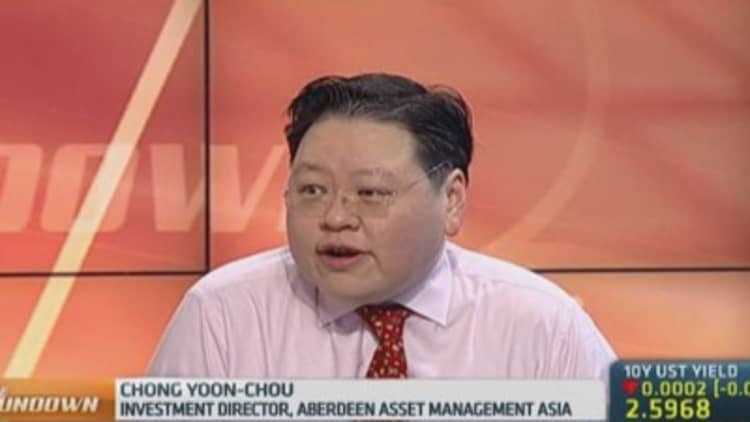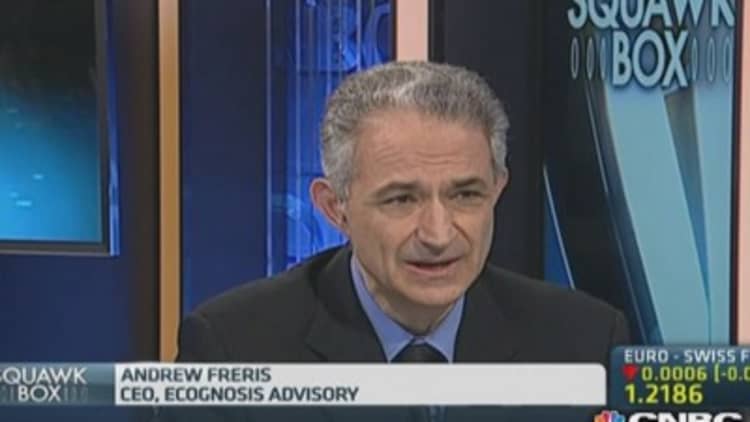
A sharp fall in imports has sparked concerns about whether China's effort to transition to a domestic-demand-driven economy is working, but analysts told CNBC it's just a matter of time.
"I think [the authorities] are committed to changing the composition of the economy," said Chong Yoon-Chou, investment director at Aberdeen Asset Management. "The key thing is this kind of transition does take time, [and it] takes a bit of pain."
Read MoreChina and Japan decoupling business from politics?
China's imports fell 1.6 percent on year in May, below expectations for a 6.1 percent rise. Exports rose 7 percent, above expectations for a 6.6 percent rise, while the trade surplus widened sharply to $35.9 billion from April's $18.5 billion, the General Administration of Customs said on Sunday.
After years of double-digit growth authorities recently signaled their intention to shift the economy from investment-driven growth to domestic-demand-driven growth amid concerns about excess credit in the system.
But many are worried; if the transition is not managed well the economy could slow too quickly prompting a hard landing. However, Chong noted investors had to be prepared for some slowing on the domestic front.
Read MoreChina May exports gain steam but imports fall
"It's a J-curve sort of thing and we're still in that turning point," he said.
China's annual economic growth eased to 7.4 percent in the first quarter from 7.7 percent in the fourth quarter, leading many industry watchers to downgrade their 2014 growth expectations.
Read MoreChina HSBC PMI at four-month peak, but still contracts
Cyclical factors
Shuang Ding, Greater China economist at Citi Investment Research, told CNBC it was difficult to draw conclusions about the success of the government's transition based on one month's data.
"This month [imports] disappointed for two reasons: cyclical weakness in real estate investment and the reduction of commodity financing due to a depreciation in the currency and reports of the investigation into the use of commodity imports as collateral," he said.
Read MoreChinese military spending exceeds $145 billion: US
"I would agree that longer-term investment will play a smaller role and consumption will start to grow faster and contribute more to GDP (gross domestic product) growth but I cannot see that from [just] one month [of] data," he added.
Separately, some analysts believe May trade figures were distorted by a base effect given a reported glut of fake export invoicing last year, the BBC reported.

Further stimulus?
Weak imports have prompted speculation about whether authorities would implement further stimulus measures. The government recently took steps to stimulate the economy, including targeted reserve requirement ratio cuts.
But Citi's Ding said, if anything recent data reduced the chances of further stimulus.
Read MoreChina stocks:Can the ugly duckling turn into a swan?
"Exports are improving and may improve further - that will help to provide a cushion to the GDP slowdown and reduce the downside risks to the economy. Also, the weakness in imports so far is not consistent with expectations for official Purchasing Managers Index (PMI) in May which showed an improvement in domestic demand," he said.
China's official PMI rose to a five-month high of 50.8 in May. A sub-index for new orders rose to 52.3 from 51.2 in April. The 50-level separates expansion from contraction.
"So I think there are mixed signs right now and usually the government will not produce big stimulus when the indicators point in different directions," he added
Read MoreIs China still growing too fast?


